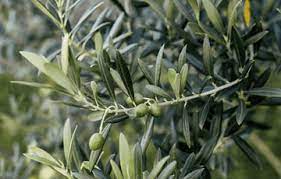Olive Nodes is the point on a stem where leaves, branches, or flowers arise. It’s essentially a small swelling or protrusion on the stem from which these structures emerge. An axillary bud is a bud located in the axil of a leaf, which is the angle between the leaf and the stem. Axillary buds can develop into branches or flowers.
In the case of olive trees (Olea europaea), the leaf nodes would refer to the points on the stems where the leaves are attached. The axillary buds located at these nodes can potentially give rise to new branches or flowers, contributing to the growth and development of the olive tree.
The Economic Importance and Uses of Olive Nodes

1. Culinary Uses: Olives are a staple in Mediterranean cuisine and are used in various dishes, including salads, pizzas, pasta, and appetizers. They can be consumed as whole fruits, sliced, or crushed to make spreads and pastes.
2. Food Preservation: Olives are often cured or fermented to enhance their flavor and extend their shelf life. This preservation method contributes to food security and availability throughout the year.
3. Table Olives: Some olives are processed and sold as table olives. They are typically soaked in brine or other solutions to make them palatable for direct consumption.
4. Health and Wellness: Olive products, especially extra virgin olive oil, are known for their health benefits due to their high levels of monounsaturated fats and antioxidants. Olive oil is associated with reduced risk of heart disease, improved cholesterol levels, and other health benefits.
5. Cosmetics and Skincare: Olive oil is used in the production of various cosmetic and skincare products, including soaps, lotions, creams, and hair treatments. It is known for its moisturizing and nourishing properties.
6. Pharmaceutical and Medicinal Uses: Olive leaves, olive oil, and extracts from olives have been used in traditional medicine for various purposes. They are believed to have antimicrobial, antioxidant, and anti-inflammatory properties. Research continues to explore their potential therapeutic applications.
7. Wood and Craftsmanship: Olive wood is highly valued for its beauty and durability. It is used to create furniture, decorative items, and utensils.
8. Tourism and Culinary Experiences: Olive groves and olive oil mills often attract tourists, contributing to agricultural tourism. Visitors can learn about olive cultivation, processing, and tasting sessions, enhancing local tourism economies.
Read Also: Olive Stamens: Economic Importance, Uses, and By-Products
The Products and By-products That Can Be Derived From Olive Nodes
Olive nodes, also known as olive pits or olive stones, are the hard, woody structures found at the center of olives. These nodes can be utilized to produce various products and by-products. Here’s a list and explanation of the potential products and by-products that can be derived from olive nodes:
1. Olive Pit Fuel: Olive pits can be dried and processed to create olive pit fuel, which can be used as a biomass fuel for heating and cooking. It’s a sustainable and renewable energy source.
2. Olive Pit Charcoal: Olive pits can be charred to produce olive pit charcoal, which can be used for grilling, smoking food, or as a soil amendment.
3. Activated Carbon: Olive pit charcoal can be further processed to create activated carbon, which is used in water and air purification, adsorption of contaminants, and other industrial applications.
3. Biochar: Olive pits can be converted into biochar through pyrolysis, which is a valuable soil amendment that improves soil structure, water retention, and nutrient absorption.
4. Olive Pit Oil: Olive pits contain a small amount of oil that can be extracted using specialized equipment. The oil is used for various purposes, including as a source of biofuel or for industrial applications.
5. Olive Pit Flour: Olive pits can be ground into a fine powder to produce olive pit flour, which can be used as a dietary fiber supplement or in baking and cooking.
6. Olive Pit Mulch: Ground or crushed olive pits can be used as mulch in gardening and agriculture to improve soil moisture retention, suppress weeds, and enhance soil fertility.
7. Olive Pit Ash: Ash obtained from burning olive pits can be used as a soil amendment to provide essential minerals and nutrients to plants.
8. Olive Pit Compost: Olive pits can be composted along with other organic matter to create nutrient-rich compost for improving soil health and fertility.
9. Olive Pit Crafts: Olive pits can be creatively utilized to make crafts such as jewelry, ornaments, or decorative items, leveraging their unique texture and hardness.
10. Olive Pit Animal Bedding: Ground or crushed olive pits can be used as animal bedding in stables and poultry farms, providing a comfortable and absorbent bedding material.
11. Olive Pit Fertilizer: Olive pits can be processed into a fertilizer or nutrient-rich additive to enhance plant growth and soil fertility.
In conclusion, by maximizing the utilization of olive nodes and their by-products, the olive industry can minimize waste and promote sustainability in various sectors, including energy, agriculture, and manufacturing.
Read Also: Business Growth Tips You Can Implement Today

